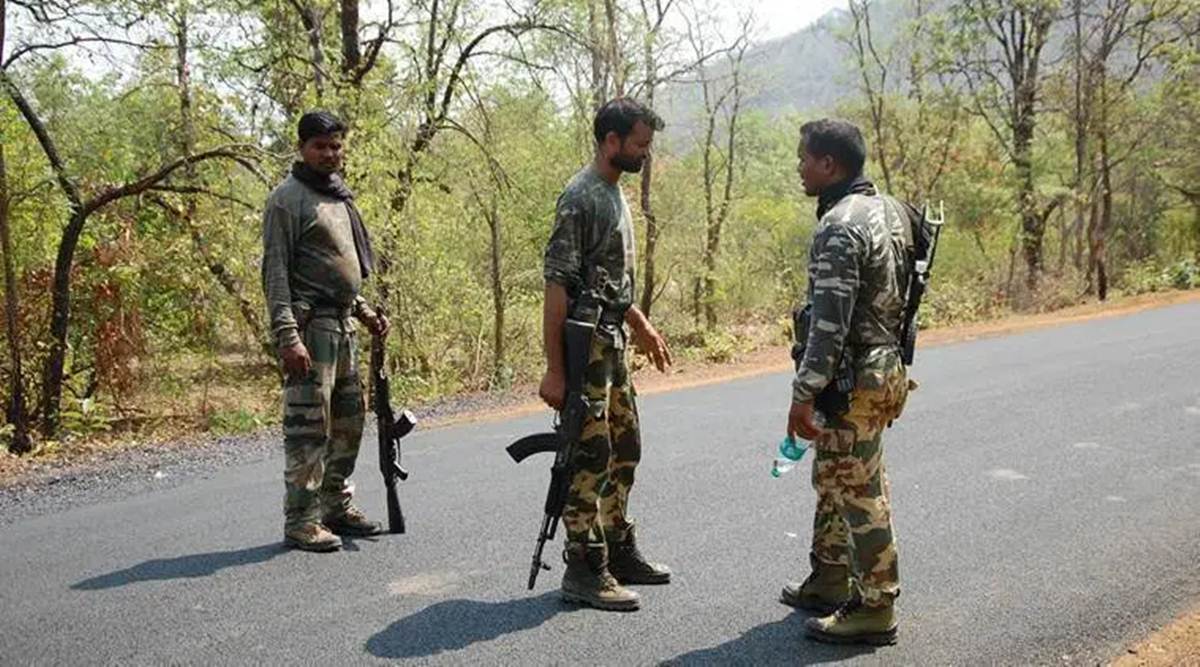On August 13, similar hand-written Maoist posters were found in the villages of Bhulaveda, Tongveda and Charakpahari. In those, people were told to observe August 15 as a “black day”.
Senior officers of West Bengal Police met in Jhargram district on Saturday, a day after Maoist posters were found in the area. There have also been reports of rebel movement in the region. Director General of Police Virendra chaired the meeting.
According to sources in the police, the security situation in the region was discussed. The police are evaluating if the posters are genuine or the work of miscreants.
The posters, written in Bengali with red ink and signed “CPI (Maoist)”, were found on Friday morning near Hadra crossing on the road connecting the district’s Belpahari and Banspahar areas. The posters warned a local contractor to stop a road expansion project in the area.
Work on expanding the 29-km road had resumed in June after lockdown restrictions were relaxed.
The posters were pasted on the contractor’s machinery and pay loaders that had been parked by the road. The posters were also found on the road.
“We have found some posters and investigation is on. Senior officers today held a meeting, and the overall LWE [Left Wing Extremism] scenario was discussed along with developmental initiatives,” said Jhargram SP Amitkumar Bharat Rathod.
On August 13, similar hand-written Maoist posters were found in the villages of Bhulaveda, Tongveda and Charakpahari. In those, people were told to observe August 15 as a “black day”. On Independence day, a Maoist squad was seen in one of the villages in the neighbouring Lalgarh area, said sources.
These reports of Maoist movements, and the return of such posters have come almost 10 years after rebel activity in the region came to a stop. The death of CPI (Maoist) Politburo member Koteshwara Rao alias Kishenji on November 24, 2011, in a gun battle with security forces in Jhargram had dealt a heavy blow to the rebels.
“Since 2011, Maoist activities have been zero in the state. Many of their leaders and cadres have surrendered. Others arrested. There are no active Maoist squads in the state right now. We are looking into the issue, and whether some of the squads from neighbouring Jharkhand are trying to regroup,” said a senior police official.
Maoist presence in Jhargram and the other districts that make up the Jangalmahal area was at its peak between 2009 and 2011. On November 2, 2008, the rebels had targeted a convoy of then CM Buddhadeb Bhattacharjee and Union Minister Ram Vilas Paswan by triggering a landmine. Both the leaders escaped unhurt.
Following the arrest of three schoolboys in connection with the attack and other alleged police atrocities, the people of Lalgarh formed the People’s Committee Against Police Atrocities (PCAPA), which was known as a frontal organisation of the Maoists. In the following months, violence between the rebels, and joint security forces of the state and the Centre escalated. Many armed CPI(M) workers were also involved in the clashes, which left scores dead.
Chhatradhar Mahato, once a leader of the PCAPA, was jailed in 2009. He got out of prison in February on bail, and was inducted into the state committee of the ruling Trinamool Congress in July.
? The Indian Express is now on Telegram. Click here to join our channel (@indianexpress) and stay updated with the latest headlines
For all the latest Kolkata News, download Indian Express App.
Source: Read Full Article





